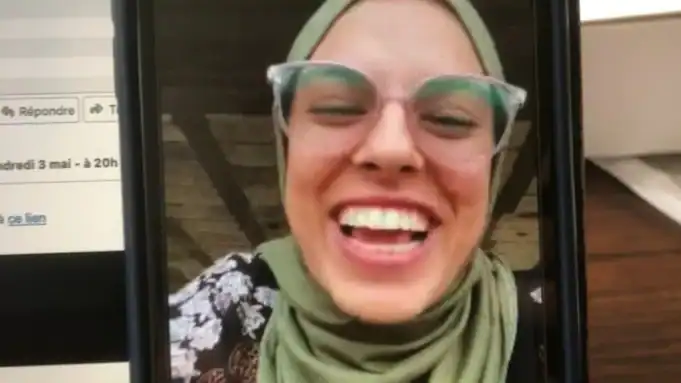Directed by Sepideh Farsi
Written by Sepideh Farsi
Starring Sepideh Farsi, Fatima Hassona
2025 | Documentary, Drama, War | 1h 53m | France, Palestine, Iran
Film director Sepideh Farsi and Palestinian photojournalist Fatma (Fatem) Hassona never meet in person.
Alike in some key ways, these two journalists differ in others. Both are refugees, Sepideh from Iran and Fatem in occupied Palestine. Both hold a deep-seated desire to film what is happening in their world and to leave a record for others to experience and remember.
Sepideh is middle aged, and mother of a daughter the same age as Fatem. Sepideh journeys between homes in Paris and Athens, and anywhere her research takes her. Fatem loves her neighborhood and friends in occupied Palestine, the only home she knows.
Denied direct access to Palestine by occupation forces, Sepideh flies to Cairo and looks for entrance through Rafah, also denied. She contacts Palestinian refugees in Cairo, and someone puts her in touch with Fatem by cell phone video. So this unique and powerful communication begins with calls originating in Canada, Italy, France, Egypt, Greece — wherever Sepideh happens to be.
Hello. How are you today? What is it like there now? Is your family safe? Each call begins with questions from Sepideh. Fatma, called Fatem in this documentary, reports what she has seen and experienced since their last conversation. Her gentle voice and radiant expression are heartening, especially in the face of what we know Gaza was enduring, the overwhelming military attacks on homes, hospitals, schools, houses of worship in an area surrounded and under constant electronic surveillance.
Sometimes conversations take place in peaceful moments. On other occasions, the internet connection fades and they must reconnect. And there are times when aerial bombardment or rocket attacks make communication difficult, as well as times when Sepideh cannot find her at all.
Interspersed in their talk of life and families are the photographs Fatem has taken, risking her life going about Al-Tuffah in north Palestine, an act of defiance and determination, something she feels compelled to do. There must be a record of what used to exist and the reality of now. Jerry-rigging equipment in the midst of war, the two journalists arrange to have Fatem’s comments and her photographs sent to Sepideh. Fatem lives her life in fragments now, comforted by her family, with whom she lives.
Sepideh speaks: a mirror held in front of me…
Conditions created by wars and walls…
Ocean of disconnections…
Fatem speaks:
We are strong and brave…
We try to live our lives…
You reach but you don’t get, because of the occupation…
I pray daily for peace…
I wrote a poem, My Death Passes through Me…
I am afraid of snipers…
My brothers search for wood and water…
They are stealing our traditions…
I can’t imagine that I have lived through this…
You put your soul in your hands and walk –
every second you walk in the street…
The two women start speaking in April 2024. By September, the strain on Fatem is evident.
Buoyed by the strength of her family, Fatem continues to record and to take Sepideh’s calls. She smiles when Sepideh asks about her hijab. Why wear it now? She smiles shyly and says because you are filming. Sepideh adds that it keeps you safe? Yes. And Sepideh recalls her own fraught years in Iran, when the hijab she wore gave her the feeling of safety until she could escape.
They speak on videophone April 15, 2025 and Sepideh shares the good news. The film of their conversations will be released soon. It will be shown in Cannes. You should think about leaving now, for your own safety, she advises. But here in Gaza is where my family lives, Fatem replies.
Fatem’s beautiful face and voice and remarkable courage will not be forgotten, thanks to her photographs and her friendship with Sepideh.

Put Your Soul on Your Hand and Walk is poignant and moving and well worth watching. Violent scenes affecting Fatem’s life are mentioned but occur off camera. The focus is on quality of life for a family of seven whose homes and gardens and shops and houses of worship and works of art have been reduced to rubble, with the help of billions of American dollars.
When you see her, you won’t forget her, or her family.



